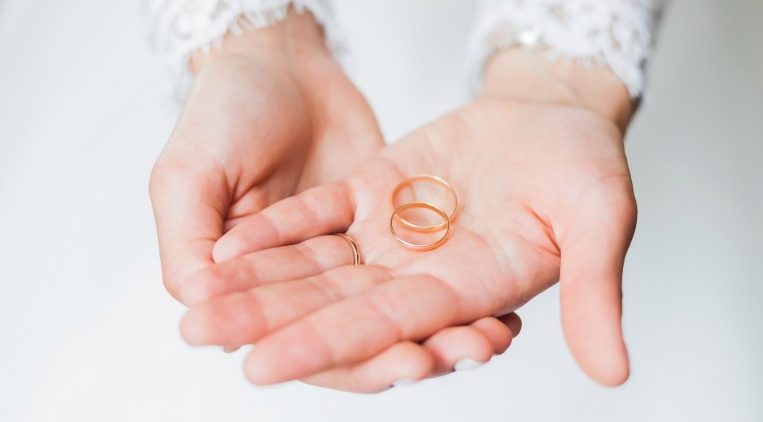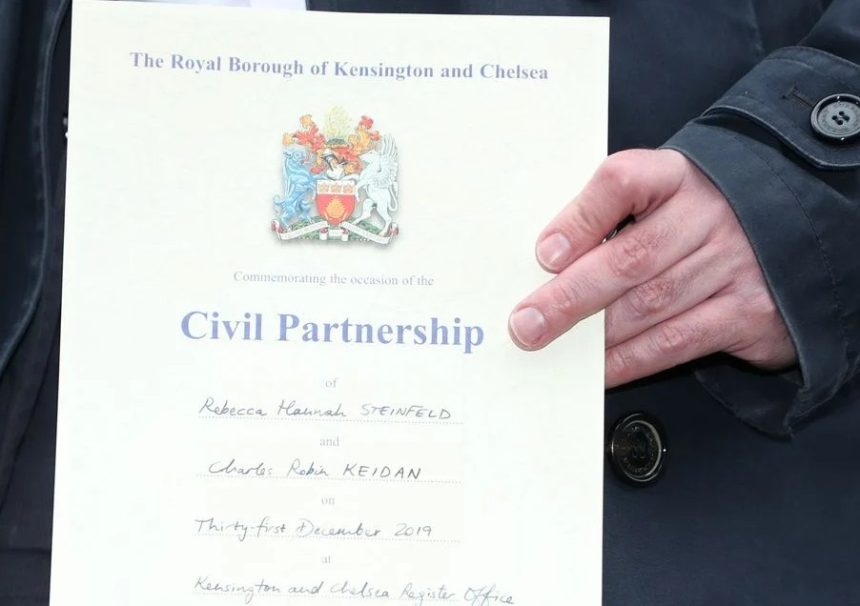In recent years, more opposite-sex couples in the UK have chosen civil partnerships over marriage, a legal option once reserved only for same-sex couples. Since the law changed in December 2019, thousands of straight couples have entered civil partnerships, sparking curiosity and public debate.
So, why would a straight couple want a civil partnership instead of getting married? The reasons vary — from ideological beliefs and a desire for gender-neutral equality, to simply wanting legal protection without the symbolism or tradition of marriage.
In this article, we explore the key reasons, legal benefits, and cultural significance of civil partnerships for heterosexual couples in the UK.
What Is a Civil Partnership in the UK?
A civil partnership is a legally recognised relationship between two people that offers almost identical rights to marriage in areas such as tax, pensions, inheritance, and parental responsibility.
Originally introduced in 2005 for same-sex couples, at a time when marriage wasn’t legally available to them, the UK extended this right to opposite-sex couples in December 2019 following a Supreme Court ruling that the previous law was discriminatory.
Today, heterosexual couples can register a civil partnership in the same way as same-sex couples, giving them the ability to formalise their relationship without entering into a traditional marriage.
Unlike cohabitation, which offers no legal protection in the UK, civil partnerships are fully legally binding.
What Legal Rights Does a Civil Partnership Offer?

Civil partnerships provide many of the same legal benefits as marriage, offering couples security and clarity in financial, legal, and parental matters.
Legal Protections and Benefits Include:
- Property ownership and inheritance rights
- Income tax benefits, such as the marriage allowance
- Pension rights (including access to death-in-service benefits)
- Next-of-kin status in medical and legal situations
- Shared parental responsibility for children born or adopted during the partnership
This makes civil partnerships a strong alternative for couples who want full legal protections, without the ceremony or symbolism that comes with marriage.
Table: Civil Partnership vs Cohabiting vs Marriage (Legal Comparison)
| Aspect | Civil Partnership | Marriage | Cohabiting |
|---|---|---|---|
| Legal recognition | Yes | Yes | No |
| Inheritance rights | Yes | Yes | No (unless will) |
| Tax benefits | Yes | Yes | No |
| Parental rights | Yes | Yes | Varies |
| Ending the relationship | Dissolution | Divorce | No legal process |
Why Might a Straight Couple Choose a Civil Partnership Instead of Marriage?
Although civil partnerships and marriages are legally similar in the UK, many opposite-sex couples choose a civil partnership for personal, philosophical, or cultural reasons.
Common Reasons for Choosing a Civil Partnership:
- Non-religious beliefs: Couples who don’t want a union associated with religion or tradition.
- Equality-driven values: A desire for a gender-neutral and more equal legal status.
- Dislike of historical symbolism: Some reject marriage due to its patriarchal roots (e.g., “giving away the bride”).
- Desire for a simple legal agreement: Civil partnerships are often seen as more practical than symbolic.
- Legal protection without ‘marriage’: For couples who have been together for years but never married, this offers rights without a wedding.
Many view civil partnerships as a modern form of commitment — one that reflects today’s changing views on gender, tradition, and legal fairness.
Is a Civil Partnership the Same as Marriage in the Eyes of the Law?

In most legal contexts, yes.
A civil partnership offers nearly identical legal benefits to marriage, especially in areas such as taxation, property, pensions, parental rights, and inheritance.
Key Similarities:
- Legal recognition under UK law
- Joint ownership of property and assets
- Shared parental rights and responsibilities
- Next-of-kin status in hospitals and legal matters
Differences:
- Terminology: No “husband” or “wife” — partners are referred to as “civil partners”
- Ceremony: Civil partnerships involve signing a legal document, not a wedding ceremony (though some couples choose to hold one)
- Ending the partnership: A civil partnership is dissolved, whereas a marriage ends in divorce.e
For many couples, the civil partnership feels more modern and neutral, while still providing a strong legal foundation.
How Do Civil Partnerships Affect Tax and Inheritance Planning?
One of the main reasons straight couples opt for a civil partnership is to access the same financial and legal benefits as married couples.
Financial and Legal Advantages:
- Inheritance Tax: Assets passed to a civil partner are exempt from inheritance tax.
- Income Tax: Couples may benefit from the Marriage Allowance or joint tax planning.
- Pensions: Civil partners are often entitled to spousal pensions and death-in-service payouts.
- Wills and Estates: Civil partners have automatic rights to a partner’s estate — even if there’s no will.
Without a civil partnership or marriage, cohabiting couples have no automatic rights, which can result in legal disputes or missed benefits.
What Do Surveys and Public Opinions Reveal About This Choice?
Public attitudes toward civil partnerships have shifted significantly in recent years, particularly among younger generations who seek alternative relationship formats.
Key Stats and Trends:
- In the first year after the law change, over 7,000 opposite-sex civil partnerships were registered in England and Wales (ONS).
- Most were aged 30–49, suggesting it appeals to more established couples.
- A significant number of couples said they chose civil partnerships for ideological or philosophical reasons, not legal necessity.
This growing interest suggests civil partnerships are more than a legal workaround — they’re a preferred option for many UK couples.
Can Civil Partnerships Be Converted Into Marriages — and Vice Versa?
Yes. In England and Wales, couples can convert a civil partnership into a marriage if they change their minds later on. However, you cannot convert a marriage into a civil partnership.
Conversion Details:
- Requires a simple legal process and, optionally, a ceremony
- Costs may vary depending on location and whether a ceremony is held
- Offers flexibility for couples whose views or situations evolve over time
This gives couples the freedom to redefine their commitment as they see fit, without losing their legal protections.
Final Thoughts – Civil Partnership as a Modern Commitment Option
So, why would a straight couple want a civil partnership? For many, it’s a modern, legal, and equal alternative to traditional marriage. It provides the same legal protections, but without the historical, religious, or symbolic baggage that marriage sometimes carries.
As social norms shift, civil partnerships offer an important reminder: not every committed relationship looks the same, and that’s okay. Whether it’s for legal peace of mind or a statement of personal values, civil partnerships are here to stay as a powerful option for UK couples.






